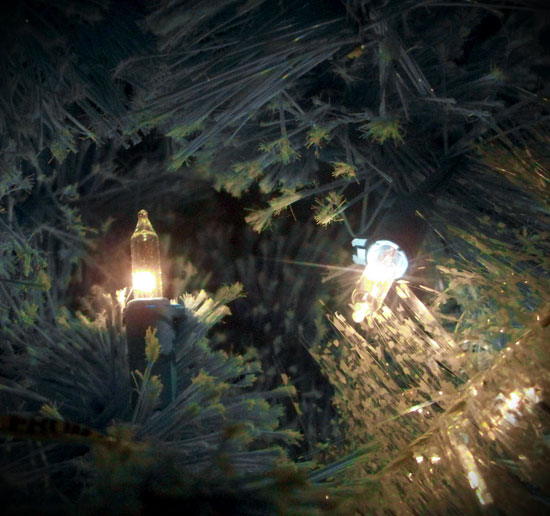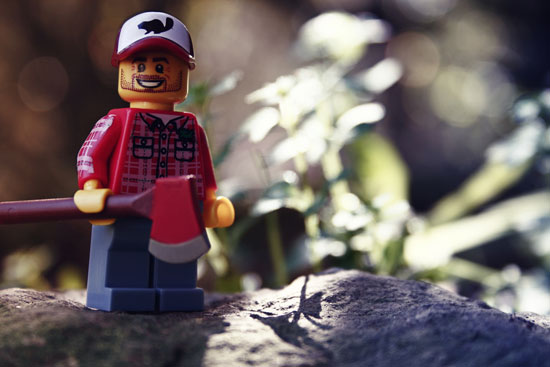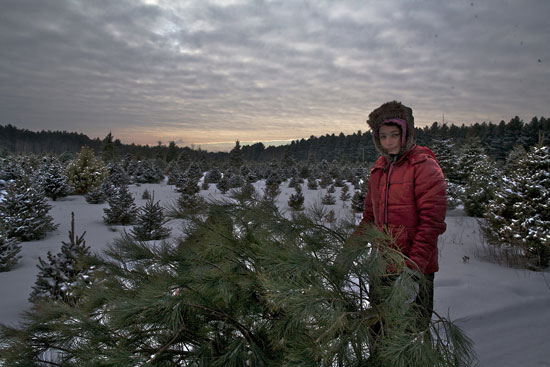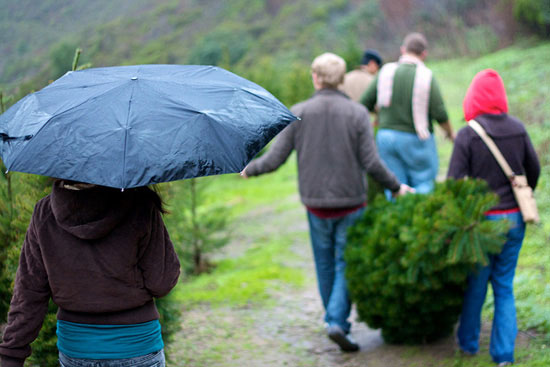From shopping bags and gift wrap to the train, plane and car trips that we take to visit family and friends, our carbon footprints get a little larger during the holidays. So when it comes to choosing a Christmas tree, why not do so with the environment in mind? While the "real" versus "fake" debate rages on, we have sifted through the arguments to find four tips that will make your Christmas tree "green."

Image courtesy Jo Naylor/Flickr
1. Avoid artificial. As deforestation becomes a global concern, an artificial tree might seem like a green choice. But some researchers disagree. Most of the artificial Christmas trees sold in the United States are made in China using polyvinyl chloride or PVC, a kind of plastic whose petroleum-dependent manufacturing, processing and shipping is a serious emitter of greenhouses gas. And while one study did find that reusing an artificial tree can be greener than purchasing a fresh-cut fir each December, that artificial tree would have to be used for more than two decades—and most end up in a landfill after just six to nine years.

Image courtesy Dave Mathis/Flickr
2. Don’t be a lumberjack. While going artificial might not be the greenest choice, neither is hiking up a local mountain with an axe in hand. When a tree is removed and not replaced, its ecosystem is robbed of the multiple benefits that even a single tree can provide. Trees clean our water and air, provide habitat for wildlife and prevent soil erosion. Instead of chopping down your own Christmas tree, visit a farm where trees are grown, cut and replanted just like any other crop.

Image courtesy macattck/Flickr
3. Choose a tree farm wisely. Millions of Christmas trees are grown on farms across the United States, emitting oxygen, diminishing carbon dioxide and carrying some of the same benefits of a natural forest. And some of these tree farms are sustainable, offering locally-grown, pesticide-free trees and wreaths. Find a tree farm near you.

Image courtesy Klara Kim/Flickr
4. Go “balled and burlapped.” Real Christmas trees are often turned into mulch once the season is over. But some farmers are making Christmas trees even more sustainable! Instead of cutting down a tree at its trunk, a tree’s roots are grown into a ball and wrapped in a burlap sack. Once the tree is used, it can be replanted! If your yard doesn’t have room for another evergreen, look for a company that will return for its tree after the holidays.

